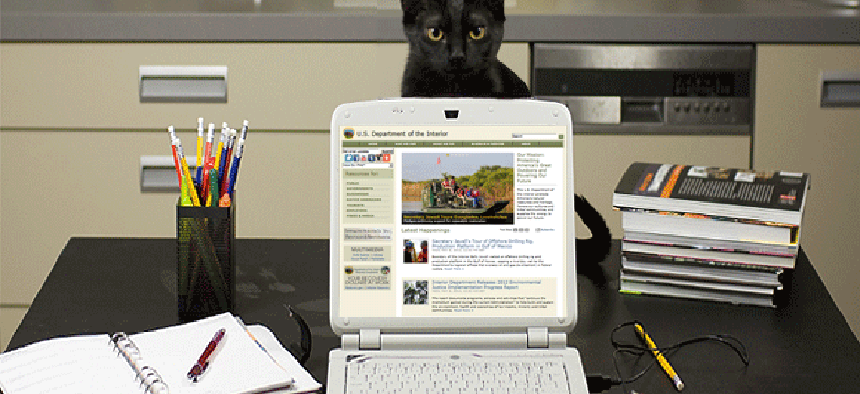3 agencies whose telework programs showed 'tele-vision'


Connecting state and local government leaders
The Mobile Work Exchange recently announced the recipients of the group's 2013 Tele-Vision Awards.
The Mobile Work Exchange, which promotes sharing about innovations in setting up telework systems and programs between government and commercial organizations, recently announced the recipients of the group's 2013 "Tele-Vision" Awards.
The MWE awards recognize telework projects and programs that show productivity gains, cost savings and information security practices.
Here are three winning projects that showed agency telework programs can save time and money:
1. "The Largest Leap In Telework/Mobility" award went to the Telework Program of the Department of the Interior Inspector General’s Office. I
In three years, from 2009 to 2012, the agency's IG office went from near-zero participation in telework to 98 percent. That might have made an impact on the employee satisfaction and productivity at the office, because in the 2012 Best Places to Work survey, the DOI was ranked eighth among agencies on work-life balance. And to show its ability to handle any amount of remote access in an emergency, the office even had a mandated telework day, according to the MWE.
2. The winner of MWE's state and local government award went to the bring your own device program set up by the Virginia Information Technologies Agency.
In less than five years, the number of state employees who telework at least one day a week went from a meager 44 percent to an impressive 89 percent, according to MWE. One possible reason for the surge in participation was that VITA offered a stipend to employees who wanted to use their mobile device for work in lieu of a government-furnished device, which both appealed to employees and saved the state money.
3. Security is always a huge concern when employees need remote access. The MWE recognized that by giving its "Excellence in Enabling a Secure Mobile Workforce" award to the U.S. Merit Systems Protection Board.
Through the first half of fiscal year 2013, 58 percent of initial appeals to MSPB and 65 percent of case pleadings were filed electronically through MSPB’s e-Appeal online filing portal, MWE noted.
MSPB is also piloting a “My Cases” app, which lets employees review and annotate case files on tablet devices from any location. And with such a high percentage of the Board’s business being done electronically, MSPB earned recognition for keeping everything secure, according to MWE.
Telework is an increasingly critical aspect of any government IT department, and it is important to see productive work in this area get the recognition it deserves.




